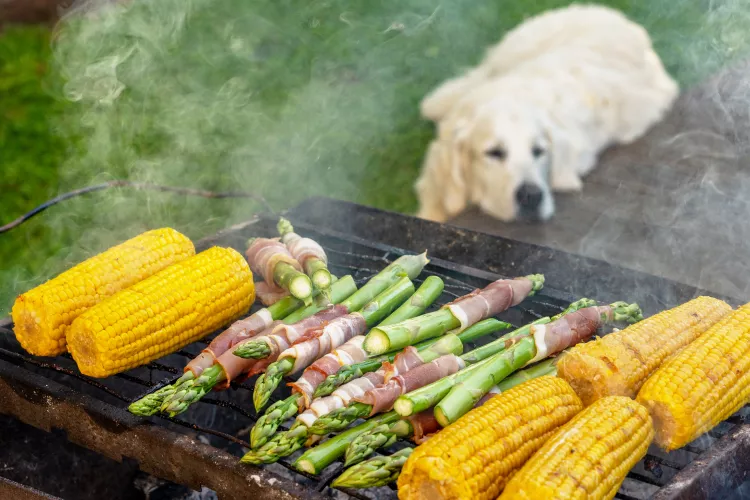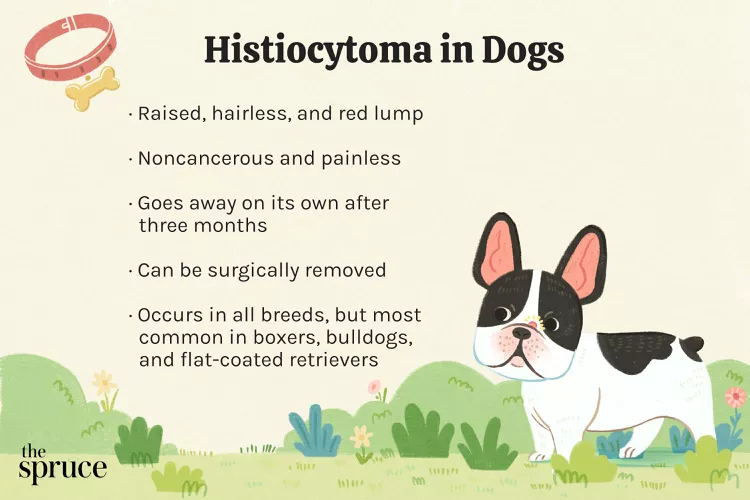
If you’re a spicy food lover, you may be wondering if your pup would enjoy a bite of your favorite hot dish. When it comes to spicy food, dogs may experience a more limited taste and sensation of spicy ingredients, however, it is not a good idea to share many of these foods with them.
The short answer is yes, but they may not be as sensitive to or appreciate spice and flavors as much as people would. Dogs may experience the sensation of heat and burning after eating something spicy like we—or at least some of us—do. In particular, these sensations are the response to a compound called capsaicin found in chili peppers, the active ingredient in most spicy foods.
The taste buds detect 5 basic flavors; salty, sweet, sour, bitter, and umami. Different animals and humans have varying compositions of these taste bud receptors, which explains why some animals are more or less sensitive to flavors like sweet or bitter. Dogs in particular have many fewer taste buds than humans, about 1,700 for dogs compared to 9,000 for humans. As a result, dogs are less sensitive to certain flavors in their foods. However, since spice is processed differently, they can be highly sensitive to the sensations of heat and burning created by spicy foods.
Although we know that dogs can experience spicy flavors, whether or not they should indulge is a different question. In most cases, the answer is no. For starters, most dogs will not enjoy this feeling.
Even though some people love that tongue-burning, eye-tearing, mouth-watering experience that comes with biting into a ghost pepper, it would likely be distressing to a dog to feel that kind of burning and heat. In some cases, there could also be additional health problems that follow from eating spicy foods. Additionally, many dogs are smaller than their human counterparts and have a different metabolism, so keep in mind that what might look like a small amount to you may be quite sizable to them, especially for toy and small breed dogs. Avoiding spicy foods to your dog is the safest plan.
Spicy foods should be avoided for a number of reasons.
If your dog took a small bite or lick of a spicy pepper, it may be uncomfortable but is unlikely to cause serious harm. While many human remedies for spicy food call for dairy products like milk to cool the burn, dogs should not eat large amounts of dairy as this can cause tummy troubles like diarrhea. A small spoonful of low-fat yogurt may do the trick if you have some on hand but in most cases, the burning sensation will subside within a few minutes and your dog will be just fine.
If your pup ingested a very large quantity of spicy food, or ate something that you think may contain other toxic ingredients, contact your veterinarian right away.
If you think your dog ate something toxic, it may also be helpful to call one of the animal poison control hotlines, such as the ASPCA Poison Control Hotline, to find out what signs to expect given the type and quantity of toxins your dog ate. The more information you can provide, the better they can guide you as to what to expect and the best course of treatment. There are some medications that may help with the discomfort of eating a lot of spicy food and some dogs might also need supportive treatment for vomiting, diarrhea, or other side effects they are experiencing.

Cute Pictures & Facts About Calico Cats & Kittens
Learn fascinating facts about calico cats, including photos, the genetics behind this color combination, and common folklore and traditions.
How to Prevent Cat Separation Anxiety During Vacations
Discover why cats develop litter box problems and cat behavior problems when you go on vacation and what you can do about it to help them.
Cat Behavior Changes That Might Mean Something's Wrong
Cats' behavioral changes may indicate problems—or they may mean nothing at all. Explore causes of odd behavior and what to do about them.
Lhasa Apso: Dog Breed Characteristics & Care
The Lhasa apso is an ancient breed from Tibet that was bred to be a watchdog. Learn about its history, health, exercise needs, and more.
Reasons Why Dogs Run Away and How to Stop It
Dogs can escape, especially if they’re bored and not properly contained. Here are some techniques for stopping your dog from running away.
Can Dogs Get Depression? How to Help Your Sad Dog
Can dogs get depression? Learn about the signs of depression in dogs and find out how to help your sad dog.
How to Stop Aggression in Dogs
Dog aggression can be a serious behavior issue for pet owners. Learn how to stop aggression in dogs before someone gets hurt.
How to Stop Your Dog From Growling
A growling dog can soon become even more aggressive. Reduce the noise and potential for a dangerous situation with some of these techniques.
Why Do Dogs Dig Holes? How to Stop Your Dog from Relandscaping Your Yard
Dogs have been digging holes for centuries and for many reasons. Whether they’re bored or want to cool off in the dirt, here are the top reasons why dogs dig holes.
Dog Treat Varieties
Learn about the different types of dog treats on the market and decide which are best for your dog.
Can Dogs Eat Asparagus?
Dogs can eat asparagus, provided the vegetable is cooked plain and cut up for them. Seasonings, salt, and butter make it unhealthy for dogs.
Histiocytomas in Dogs
A histiocytoma is a type of benign (non-cancerous) skin lump that usually affects young dogs. Learn the causes, treatment, and prevention.
Why Is My Dog’s Eye Swollen?
If your dog's eye is swollen, she may need veterinary attention. The inflammation could be caused by allergies, an injury, or even a tumor.
Common Bugs and Parasites Found on and Inside Dogs
Learn about common types of parasites in dogs. Find out how to treat and prevent parasites to keep your dog, your family, and yourself safe.
Exploring the Different Types of Pet-Friendly Beaches
Are you looking for pet-friendly beaches? Learn about the different types of pet-friendly beaches, their locations, and tips for visiting them with your pet.
10 Obscure, Little-known Canine Facts in Honor of National Dog Day
With National Dog Day upon us, it's time to celebrate everything about our favorite pets—even the weirder stuff. Here are 10 obscure facts about dogs you probably didn't know.
Kitten Development From 3 to 6 Months Old
Kittens grow and change a lot during their first year. Find out what happens between the ages of three months and six months old.
95 Siamese Cat Names
Our list of Siamese cat names has diverse and fun options to help you choose the ideal moniker for your elegant and lovable feline companion.
What to Buy for Your New Cat: A List of Essentials
Before you bring your new cat or kitten home, there are a number of things to collect or buy so your cat will feel welcomed like a family member.
The 6 Best Cat Nail Clippers of 2024 for a Safe Trim
Clipping your cat's nails can save your furniture and keep your kitty comfortable. We asked veterinarians for their cat nail clipper recommendations.